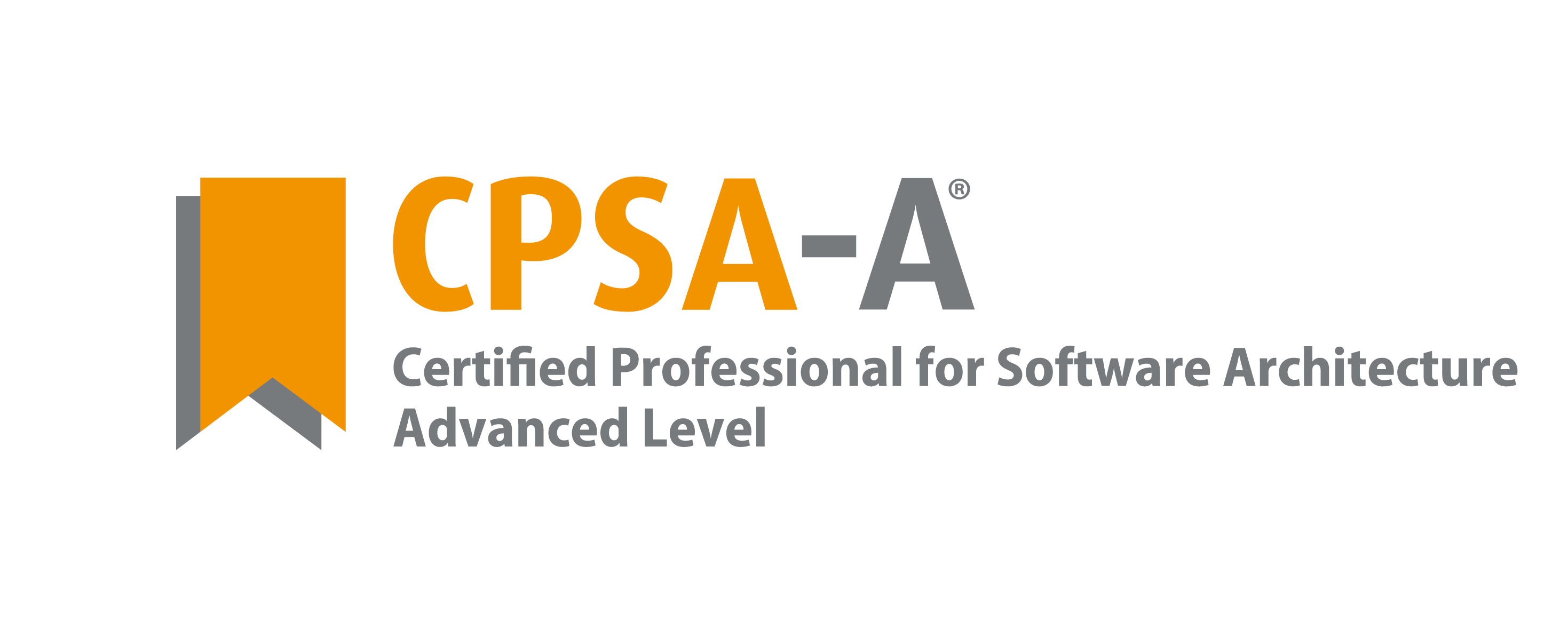iSAQB CPSA-A FLEX
iSAQB® CPSA-A - Flexible Architecture Models (Course)

Description
Attending the iSAQB® CPSA-A Flexible Architecture Models (FLEX) course gives participants 20 Technical Competence (TC) and 10 Methodological Competence (MC) points towards the 70 points required for eligibility to take the iSAQB CPSA-A exam with Brightest. It is important to remember that as part of the 70 points required to take the iSAQB CPSA-A exam with Brightest, you will need at least ten competence points in each of the following areas:
- Technical Competence (TC)
- Methodological Competence (MC)
- Communicative Competence (CC)
Accredited iSAQB® FLEX - Flexible Architecture Models (CPSA-A) training is based on the current iSAQB® curriculum:
Part 1 - Motivation
- Create flexible architectures
- Apply flexibility to concrete projects/system developments
- Interaction of architectures with organization, processes, and technologies
Part 2 - Modularization
- Conway's law
- Being able to evaluate and select technical modularization concepts on a project-specific basis
- Context mapping
- Evaluation of different modularization strategies
- Impact of the modularization strategy on autonomy
- Choose the appropriate modularization and the appropriate level of detail for modularization
Part 3 - Integration
- Design a suitable approach to implement security in a distributed system
- Designing a macro architecture
- A strategic design approach with essential patterns, such as Anti-Corruption Layers, can be used
Part 4 - Installation and Roll-out
- Balancing the different technological approaches
- Design and evaluation of deployment automation
- Being able to sketch a team structure
Part 5 - Operation, Monitoring, and Error Analysis
- Monitoring
- Architectural specifications can be met
Part 6 - Case Study
- Deepen and clarify topics through practical exercises
Part 7 - Outlook
- Consistency models
- Resilient software design
Target Audience
The CPSA-A Flexible Architectures Training seminar is particularly valuable for professionals who want to develop flexible architectures and explore modern architecture approaches such as microservices, continuous delivery, self-contained systems, and up-to-date operating principles.
Requirements
To join any iSAQB® CPSA - Advanced Level course, you must hold the iSAQB® Certified Professional for Software Architecture - Foundation Level (CSPA-F) certificate.
Knowledge prerequisites:
Participants should have the following prerequisite knowledge:
- Fundamentals of the description of architectures using various views, comprehensive concepts, design decisions, boundary conditions, etc., as taught in the CPSA-F (Foundation Level)
- Experience with implementation and architecture in agile projects
- Experiences from the development and architecture of classical systems with the typical challenges.
Knowledge in the following areas may help understand some concepts covered in this course:
- Distributed systems
- Problems and challenges in the implementation of distributed systems
- Typical distributed algorithms
- Internet protocols
- Knowledge about modularisations
- Functional modularisation
- Technical implementations like packages or libraries
- Classical operation and deployment processes
Syllabi and sample exams coming soon!
Syllabi and sample exams coming soon!
Book your Certification Exam
Brightest Private
Exam
Electronic exams for individuals are administered by a Pearson VUE expert in real time via webcam.
Brightest Center
Exam
Electronic exam for individuals at any of the 5200+ Test Centers with easy registration via the Brightest website.
Brightest Green
Exam
Electronic group exams of at least 6 participants in six different languages, anywhere in the world.
Brightest Paper
Exam
The classic exam experience for groups of at least 6 participants in a growing number of languages.